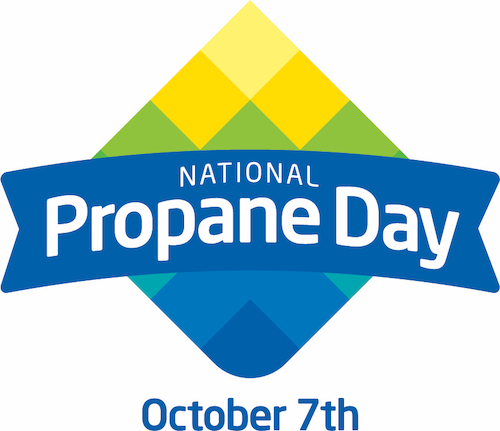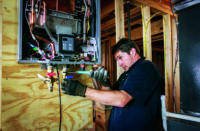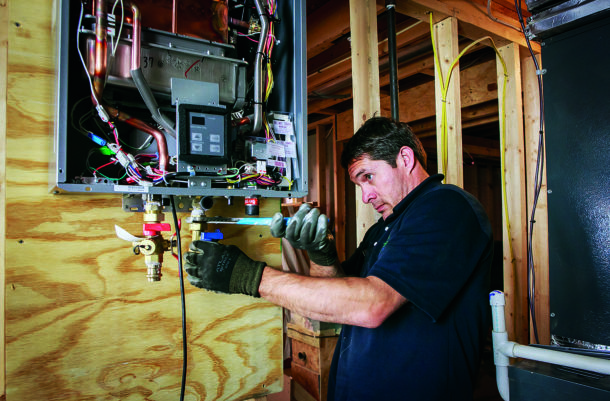Washington — The Propane Education & Research Council (PERC) is celebrating the second annual National Propane Day on October 7, 2023. National Propane Day is an opportunity to celebrate all the ways propane keeps America running and to highlight all the benefits propane offers to users everywhere, including homeowners, businesses and construction professionals. “Propane is Read more
PERC

 Washington — The Propane Education & Research Council (PERC) is celebrating the second annual National Propane Day on October 7, 2023. National Propane Day is an opportunity to celebrate all the ways propane keeps America running and to highlight all the benefits propane offers to users everywhere, including homeowners, businesses and construction professionals.
Washington — The Propane Education & Research Council (PERC) is celebrating the second annual National Propane Day on October 7, 2023. National Propane Day is an opportunity to celebrate all the ways propane keeps America running and to highlight all the benefits propane offers to users everywhere, including homeowners, businesses and construction professionals.
“Propane is energy for everyone, ensuring resiliency, energy equity, and reducing carbon emissions in communities throughout the nation,” said Tucker Perkins, president and CEO of PERC. “On October 7, we are celebrating National Propane Day by reminding people about the benefits of propane—it’s a clean, reliable, available, and versatile energy source.”
Millions of Americans use low-carbon propane for heat, hot water, cooking, and power generation at home and at work. It is also a popular energy source for school buses, emergency first-responder equipment, high-end restaurants, agriculture operations, and numerous other applications.
As a highly efficient and reliable energy source, propane is also an ideal choice to ensure homes, businesses, and construction crews stay resilient. Propane generators ensure homes and businesses can power essentials when weather strikes or the electric grid goes out. For construction crews, portable propane generators ensure energy is always within reach to power tools and lighting.
As part of National Propane Day, PERC is also celebrating the continued growth and production of renewable propane—an ultra-low carbon option that further moves the propane industry down the path to zero carbon emissions. Renewable propane is made primarily from plant and vegetable oils, animal fats, or used cooking oil. It offers the same great features as conventional propane—reliability, portability, and power—with the added benefit that it introduces no new carbon into the environment.
To learn more about how propane can help construction professionals, visit Propane.com.

Increase efficiency, lower emissions with a clean energy source made in the USA This Earth Day, the Propane Education & Research Council (PERC) is reminding builders, architects, engineers, and contractors that propane-powered systems can help buildings reduce emissions and their overall carbon footprint. “Achieving sustainability goals in new construction or renovation projects is a team Read more
Increase efficiency, lower emissions with a clean energy source made in the USA
This Earth Day, the Propane Education & Research Council (PERC) is reminding builders, architects, engineers, and contractors that propane-powered systems can help buildings reduce emissions and their overall carbon footprint.
“Achieving sustainability goals in new construction or renovation projects is a team effort, requiring input from the builders, architects, engineers, and contractors as well as from the owners, operators, and facility managers who run and occupy buildings,” said Bryan Cordill, director of residential and commercial business development at PERC. “As states and municipalities continue to adopt more demanding emissions standards, it’s important to consider the emissions profile of a building’s systems and appliances—and the energy source powering them.”

Commercial construction professionals and their customers frequently look for reliable, available power solutions with a low emissions profile. Ensuring a sustainable operation is more important than ever as commercial sites try to become better environmental stewards, making propane-powered systems like furnaces, boilers, backup generators, and water heaters an even more compelling choice.
For example, propane water heaters use less source energy and generate fewer greenhouse gas (GHG), nitrous oxides (NOx), and sulfur oxides (SOx), emissions than conventional electric resistance water heaters. When compared to electric heat pump water heaters, propane water heaters have comparable source energy and GHG emissions, with significant reductions in SOx, according to data from the Gas Technology Institute (GTI) and PERC.
Propane-powered backup generators produce considerably fewer emissions than their diesel counterparts. Propane burns cleaner than diesel, reducing NOx and SOx emissions, particulate matter, and carbon dioxide. Data from the Department of Energy (DOE) shows diesel produces 16 percent more carbon dioxide emissions per unit of energy than propane. Additionally, when propane is stored on site, either above or below ground, there’s no risk for land or groundwater contamination. Diesel, on the other hand, has the potential to contaminate soil if it spills or leaks.
“Versatile propane systems can meet the demands of a wide variety of commercial spaces like restaurants, schools, warehouses, hospitals, office spaces, and retailers” said Cordill. “And because propane is an independent and highly portable energy source that works well with other clean energy sources, businesses can rely on it for clean power and energy resilience–not only on Earth Day, but all year long.”
To learn more about how propane can help construction professionals meet environmental and efficiency goals this Earth Day, visit Propane.com/Commercial-Buildings-and-Construction.

Propane and solar can work together to play a large part in national energy conversation Solar Appreciation Day is Friday, March 11, and the Propane Education & Research Council (PERC) is sharing ways that construction professionals and their customers can use propane and solar energy together to reduce their carbon footprint. “Solar PV, an intermittent Read more
Propane and solar can work together to play a large part in national energy conversation
Solar Appreciation Day is Friday, March 11, and the Propane Education & Research Council (PERC) is sharing ways that construction professionals and their customers can use propane and solar energy together to reduce their carbon footprint.
“Solar PV, an intermittent electricity producer, is a low-emission, renewable energy source,” said Bryan Cordill, director of residential and commercial business development at PERC. “However, relying only on solar power can be difficult in regions due to a variety of reasons like the amount of daylight hours during winter or tree cover. Propane can help.”

Currently, propane is used by nearly 12 million U.S. households for home heating, water heating or cooking, and by thousands of American businesses. The more propane appliances a business or home has, the lower the amount of solar power needed to operate lights or charge cell phones. Hybrid systems that run on propane and solar can be tailored to a project’s unique needs, providing lower first costs and reduced ongoing energy costs and emissions.
Large, sustained power outages have continued over the last two decades according to the U.S. Department of Energy (DOE). In 2021, more than 8.6 million people experienced a power interruption. Severe weather-related problems have driven much of the increase in large outages shown, as reported by the DOE. In response, consumers are investing in alternate power solutions. This increased demand for clean energy sources is why construction professionals need to be knowledgeable about different energy sources, like solar and propane.
“We need to consider a mix of energy sources (propane, solar, electric, natural gas) to keep our homes and businesses running,” said Cordill. “We can do that with a low-carbon emissions energy source—propane is here now to make that impact. A diverse energy mix ensures reliability during critical events, like severe weather.”
For contractors interested in improving a home’s carbon footprint in an affordable and reliable way for customers, propane is a viable energy solution. When propane is used with solar power systems, emissions are reduced, and reliability is increased. Discover more about the environmental benefits of propane at Propane.com.

Hydronic heating offers complete, energy-saving system for homeowners When your customers are selecting home appliances, what priorities often drive their decision making? If the answer is cost, comfort, or environmental impact, they may be interested to learn more about hydronic systems, which offer efficient home and hot water heating simultaneously. When it comes to hydronic Read more
Hydronic heating offers complete, energy-saving system for homeowners
When your customers are selecting home appliances, what priorities often drive their decision making? If the answer is cost, comfort, or environmental impact, they may be interested to learn more about hydronic systems, which offer efficient home and hot water heating simultaneously.
When it comes to hydronic heating, there are different options: the hydronic furnace and in-floor hydronic radiant heat, which is most commonly used for homes in cold climates.
Here’s an overview of how one of these systems works and how they can benefit both you and your customers.
What is a hydronic furnace?
Hydronic furnaces connect seamlessly to select tankless water heaters and condensing boilers to deliver efficient, simultaneous home heating and domestic hot water in one complete system. Hydronic furnaces use hot water from a tankless water heater, saving installation costs—and making traditional furnaces seem like a thing of the past. By pairing them with propane-powered water heater, contractors can help their customers enjoy steady, comfortable heat throughout their home.
A propane-powered tankless water heater supplies continuous hot water—unlike a traditional storage tank with a capacity of just 50 or 75 gallons and required time to recover between uses—so the system can pump a constant flow through the heating coil and deliver steady, comfortable heat to the home without the need for a fuel-powered furnace, gas piping or an extra exhaust vent to the atmosphere. At the same time, the tankless water heater performs its primary job without interruption, prioritizing heating the water that is piped to showers, sinks, dishwashers, and washing machines.
These systems can be installed in a new home or added to an existing home and can be paired with an air-source heat pump to maintain comfort and efficiencies—even on cold days when the heat pump can’t keep up. Plus, this does away with the super in-efficient resistant heat coil for the emergency heat mode.

How can this technology benefit my customers?
With a hydronic furnace, homeowners can rely on steady, comfortable heating throughout their home, saving space, energy, and money.
Budget-friendly
A tankless water heater is typically more expensive than a traditional storage tank model, but some manufacturers offer the hydronic air handler for less than a comparable gas-powered condensing furnace. When you combine that with installation savings you end up with a lower cost installed product. Plus, because propane-powered tankless water heaters only heat water when it’s needed, they can help homeowners save more than $150 per year in energy costs when compared with typical electric storage tank water heaters.
Increased comfort and control
Comfort is one of the biggest perks of hydronic heating. In fact, many homeowners report that their heat is less dry than heat radiated via a traditional furnace. With a hydronic furnace, homeowners control the air temperature by setting a thermostat, just as they would with a traditional furnace or heat pump.
Sustainable operation
And for environmentally conscious homeowner customers, they can have peace of mind knowing their system is reducing emissions compared with other energy options. Notably, a propane tankless water heater produces roughly half of the carbon emissions of an electric storage tank system when full lifecycle emissions are taken into consideration. Plus, they’re aiding in water conservation efforts because hydronic systems create no wastewater. Instead, they take the water used to heat the air and recirculate it through the tankless water heater.
How can installing hydronic heating benefit my business?
The benefits of hydronic heating don’t stop with the customer. Plumbing and HVAC contractors can reap the benefits, too. The dual technology presents an opportunity for some plumbers to get into the heating business and some mechanical contractors to add tankless water heater installation to their line of services.
Some industry pros predict that builders will embrace hydronic heating as homebuyers already familiar with the benefits of energy- efficient tankless water heaters learn that those energy- and water-saving devices can also help heat their homes.
Visit Propane.com/Water-Heating to learn more.
 Bryan Cordill is director of residential and commercial business development for the Propane Education & Research Council. He can be reached at bryan.cordill@propane.com.
Bryan Cordill is director of residential and commercial business development for the Propane Education & Research Council. He can be reached at bryan.cordill@propane.com.

Talk resiliency with customers after downloading PERC’s free power generation guide In celebration of National Preparedness Month, the Propane Education & Research Council (PERC) is encouraging construction professionals to download its new resource, The Ultimate Guide to Power Generation. This free, downloadable resource gives construction professionals an in-depth look at propane’s capabilities as a resilient Read more
Talk resiliency with customers after downloading PERC’s free power generation guide
In celebration of National Preparedness Month, the Propane Education & Research Council (PERC) is encouraging construction professionals to download its new resource, The Ultimate Guide to Power Generation.

This free, downloadable resource gives construction professionals an in-depth look at propane’s capabilities as a resilient energy source for residential, commercial, and industrial use by:
- Detailing the different types of propane power generation including prime, standby, towable and portable, and micro-combined heat and power (CHP).
- Educating construction professionals on how to bundle propane generators and propane appliances for more affordable protection.
- Sharing case studies of residential and commercial projects relying on propane generators and micro-CHP systems.
“If you think about the number of systems and appliances that are powered by electricity—whether in a home or commercial building—you can get a sense of the impact a power outage can have,” said Bryan Cordill, director of residential and commercial business development at PERC. “Recent vulnerabilities in our electric grid have prompted Americans to take a closer look at their energy selections and we want them to know they can rely on propane power generation for true peace of mind and security—all without sacrificing cost or environmental impact.”
Propane’s stability and portability make it the ideal backup power energy source. Propane-powered generators offer an efficient, versatile solution to keep homes and businesses running and protect them from the damage a power outage can cause. Available in a wide variety of capacities, there’s a model that can meet the needs of any size home, business, or commercial building. Plus, propane can power other major energy systems, too, reducing a building’s reliance on standby power.
“We want construction professionals to be well-versed in propane’s role in a resilient design and encourage them to start a preparedness conversation with their customers,” Cordill said. “After all, preparedness is the best defense.”
Download PERC’s backup power resource for free at Propane.com/Generators. To learn more about the benefits of propane, visit Propane.com.
